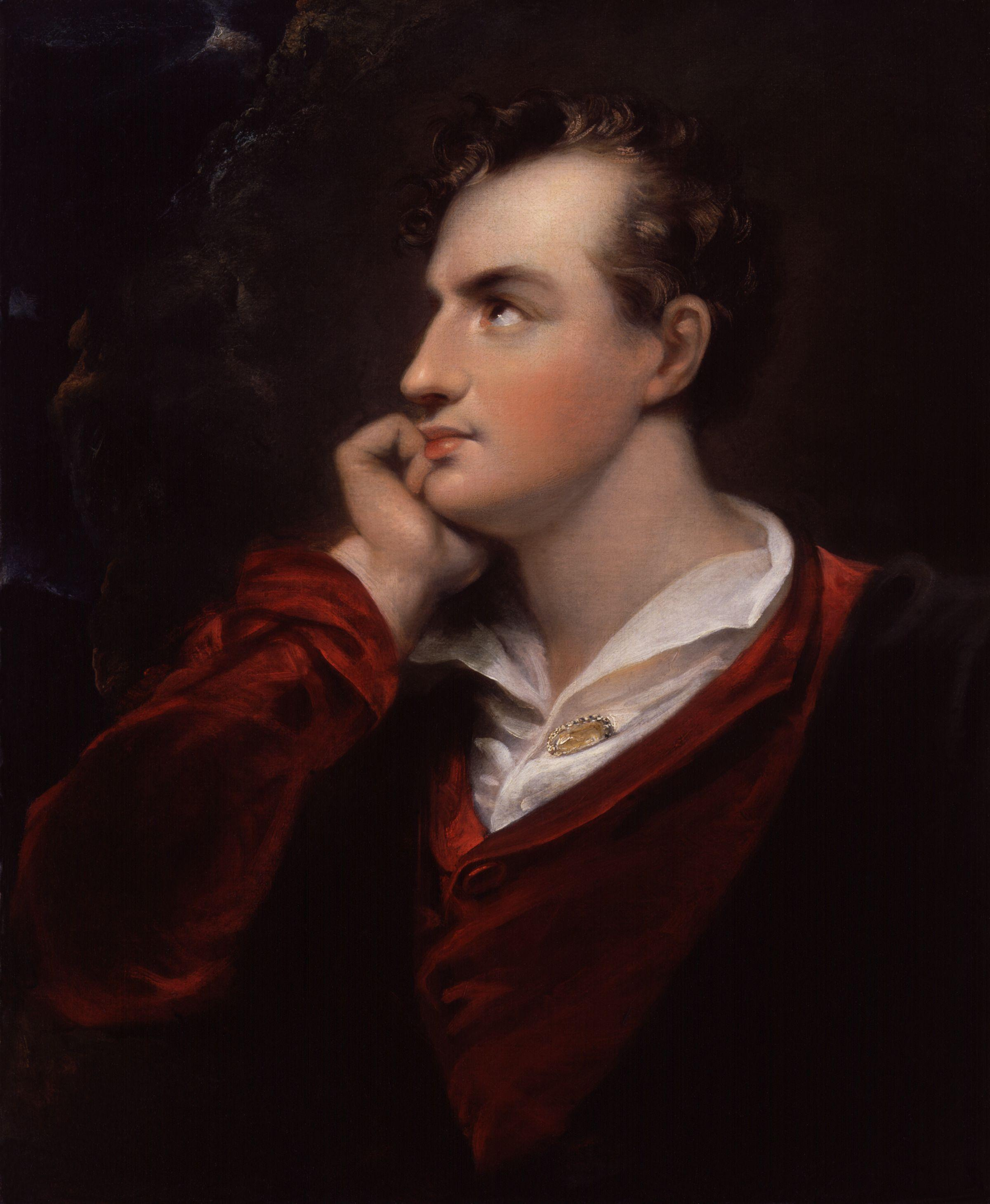
George Gordon Byron frasi celebri
Frasi sull'amore di George Gordon Byron
Origine: Da So we'll go no more a-roving, in Poesie, 1817
Origine: Citato in Tomba di Giulietta http://www.verona.com/index.cfm?Page=Guida§ion=luoghi&id=177, Notiziario BPV, numero 2, anno 1995.
Frasi sulla vita di George Gordon Byron
Don Giovanni
Origine: Citato in Elena Spagnol, Citazioni, Garzanti, 2003.
Origine: Da Il sogno, capitolo I
George Gordon Byron Frasi e Citazioni
“Il ricordo del piacere non è più piacere. Il ricordo del dolore è ancora dolore.”
Origine: Da Marin Faliero doge di Venezia
“Chi ha da fare non ha tempo per le lacrime.”
Origine: Da I due Foscari, Atto IV, Scena 1
“Oh Roma! mia patria! città dell'anima!”
IV canto
Il pellegrinaggio del giovane Aroldo
“Il "buon tempo andato"… il tempo è sempre buono quand'è andato.”
Origine: Da L'età del bronzo
“Non v'è nulla, senza dubbio, che calmi lo spirito come il rum e la vera religione.”
Origine: Citato in Focus, n. 94, p. 168.
canto IV, st. 1
Il pellegrinaggio del giovane Aroldo
“Più riposo non arreca il sonno che il piacere più non sazia.”
libro Il corsaro
Un vaso d'alabastro illuminato dall'interno
Origine: Citato in Anthony Clifford Grayling, Il significato delle cose
“Nello sport puoi scegliere tra il piacere della vittoria e il piacere della sconfitta.”
Origine: Citato in Marco Pastonesi e Giorgio Terruzzi, Palla lunga e pedalare, Dalai Editore, 1992, p. 100, ISBN 88-8598-826-2.
Origine: Citato in Kay Redfield Jamison, Toccato dal fuoco, traduzione di A. Serra, TEA, 2009, cap. 1, p. 18.
Origine: Citato in André Maurois, La prima "Lady" stregata da Byron
“Il diavolo non ha al suo arco frecce che vadano dritto al cuore più di una bella voce.”
Origine: Citato in Leggendo qua e là..., La settimana enigmistica, N. 4370, p. 4.
Un vaso d'alabastro illuminato dall'interno
Origine: Da A Thomas Moore, luglio 1817, in Pezzi domestici e altre poesie, traduzione di Cesare Dapino, Einaudi, Torino, 1986, p. 189. ISBN 88-06-59386-2
George Gordon Byron: Frasi in inglese
Mazeppa http://readytogoebooks.com/MZP21.htm (1819), stanza 9.
Stanzas to Augusta (1816), reported in Bartlett's Familiar Quotations, 10th ed. (1919).
“Oh, God! it is a fearful thing
To see the human soul take wing
In any shape, in any mood.”
The Prisoner of Chillon, st. 8.
St. 2.
So, We'll Go No More A-Roving (1817)
“How my soul hates This language,
Which makes life itself a lie,
Flattering dust with eternity.”
Act I, scene 2.
Sardanapalus (1821)
Stanzas to Augusta http://readytogoebooks.com/LB-Augusta2.html, st. 1 (1816).
“[Armenian] is a rich language, however, and would amply repay any one the trouble of learning it.”
"To Mr. Moore", From the Letters of Lord Byron, 5 December 1816, p. 12.
Lord Byron's Armenian Exercises and Poetry (1870)
From the Letters of Lord Byron (2 January 1817), p. 6.
Lord Byron's Armenian Exercises and Poetry (1870)
“Such hath it been — shall be — beneath the sun
The many still must labour for the one!”
Canto I, stanza 8.
The Corsair (1814)
The Destruction of Sennacherib http://englishhistory.net/byron/poems/destruct.html, st. 1.
Hebrew Melodies (1815)
“He seems
To have seen better days, as who has not
Who has seen yesterday?”
Werner, Act I, sc. i (1822).
Stanzas for Music http://readytogoebooks.com/LB-StanzM-beautysd.htm, st. 1 (1816).
“A change came o'er the spirit of my dream.”
Stanza 3.
The Dream (1816)
“Hands promiscuously applied,
Round the slight waist, or down the glowing side.”
The Waltz, reported in Bartlett's Familiar Quotations, 10th ed. (1919).
Letter to Thomas Moore, 5 November 1820 http://books.google.com/books?id=K-s_AAAAYAAJ&q=%22When+a+man+hath+no+freedom+to+fight+for+at+home+Let+him+combat+for+that+of+his+neighbours+Let+him+think+of+the+glories+of+Greece+and+of+Rome+And+get+knock'd+on+the+head+for+his+labours+To+do+good+to+mankind+is+the+chivalrous+plan+And+is+always+as+nobly+requited+Then+battle+for+freedom+wherever+you+can+And+if+not+shot+or+hang'd+you+'ll+get+knighted%22&pg=PA377#v=onepage
“Mark! where his carnage and his conquests cease!
He makes a solitude, and calls it — peace!”
Canto II, stanza 20. Here Byron is using an adaptation of a quote from Agricola by the Roman historian Tacitus (c. 30). The original words in the text are Auferre, trucidare, rapere, falsis nominibus imperium; atque, ubi solitudinem faciunt, pacem appellant (To robbery, slaighter, plunder, they give the lying name of empire; they make a wilderness, and call it peace). This has also been reported as Solitudinem faciunt, pacem appellant (They make solitude, which they call peace).
The Bride of Abydos (1813)
“By all that's good and glorious.”
Act I, scene 2.
Sardanapalus (1821)
“There 's not a joy the world can give like that it takes away.”
Stanzas for Music (March 1815), reported in Bartlett's Familiar Quotations, 10th ed. (1919).
